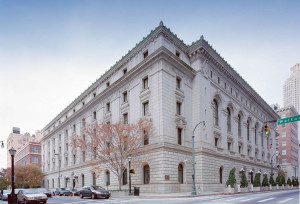Eleventh Circuit Amends Rules on Extensions, Disclosures, and Admissions

Eleventh Circuit Court of Appeals, Atlanta
The 11th Circuit will now allow a first request for extension of time of up to 14 days (instead of 7) – without having to certify pursuant to 11th Circuit Rule 26-1 that the requestor conferred with opposing counsel about the extension – which can be granted by the Clerk on a telephonic request, so long as the Court hasn’t established a written briefing schedule. 11th Cir. R. 31.2. Any request for an extension greater than 14 days still requires consultation with opposing counsel and a written motion, and the first request must still be made at least 7 days in advance.
The Court also amended the rules for filing a Certificate of Interested Persons and Corporate Disclosure Statement (CIP) to not only require the appellant or petitioner to file a CIP within 14 days of docketing of the appeal and to complete the web-based CIP form the same day, but to require all other parties to file a response to the CIP within 14 days either indicating the CIP is correct or adding additional interested persons or entities. 11th Cir. R. 26-1(a). The rule now clearly states that failure to complete the separate web form will subject a party to delay of the case and possible sanctions. 11th Cir. R. 26-1(b); 26.1-5. The rule change also clarifies the parties that need to be identified in various kinds of cases, speaking specifically to including the identity of the victims in criminal appeals, and the debtor, creditor’s committee members, and any entity which may be affected by the decision in bankruptcy appeals. 11th Cir. R. 26.1-2. Any amendments to the CIP must be brought to the Court’s attention, both in briefs and through the web-based CIP. 11th Cir. R. 26.1-4.
Finally, the attorney admission rules now impose a continuing obligation to notify the Court if an attorney’s status with any other bar lapses, and makes clear that attorneys applying for admission to the bar or to appear pro hac vice must be in good standing elsewhere. 11th Cir. R. 46-1, 46-4; 46-7. Renewal fees may now be paid online.
Download a copy of the new rules here. The Court’s summary table of the rule changes is available here.
